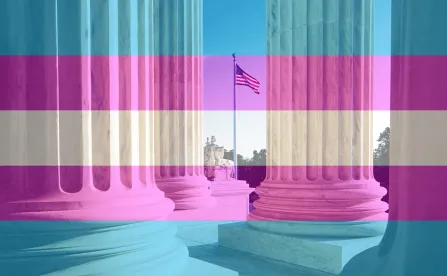In a landmark opinion authored by Justice Neil Gorsuch, the U.S. Supreme Court has ruled that Title VII’s prohibition of employment discrimination based on sex applies to both sexual orientation and gender identity.
The History of Title VII
Title VII of the Civil Rights Act of 1964 is the federal law that prohibits discrimination in the workplace on the basis of race, color, religion, national origin, and sex. Until now, it has been unclear whether or not “sex” under Title VII encompasses sexual orientation and gender identity. While sex has traditionally been defined as the characterization of a person as male or female, sexual orientation generally concerns physical attraction, and gender identity is based on social characteristics. In its sweeping decision, the Supreme Court opined that, although sex can be distinguished from sexual orientation and gender identity, the three concepts are inseparable – and therefore, “sex” must necessarily include sexual orientation and gender identity for Title VII purposes.
Prior to the Court’s ruling, LGBTQ discrimination in the workplace was still arguably legal in most of the country. Fewer than 50% of the states have laws explicitly banning employment discrimination based on gender identity and/or sexual orientation.
The Consolidated Cases
The Court’s opinion is the product of three consolidated cases alleging workplace discrimination:
-
Bostock v. Clayton County: Gerald Bostock, a child welfare coordinator for Georgia’s Clayton County, was fired for “unbecoming conduct” after the County learned of his participation in a gay softball league.
-
Altitude Express, Inc. v. Zarda: Donald Zarda, a New York skydiving instructor, was fired after his employer received a complaint that, during a jump, he had informed a customer that he was gay.
-
G. & G.R. Harris Funeral Homes, Inc. v. EEOC: Aimee Stephens, a transgender funeral director in Michigan, was fired after telling her boss about her plans to transition.
All three employees filed suit, alleging that their employers illegally terminated them because of a protected status – sex – in violation of Title VII. The employers asserted that the employees were not protected by Title VII, and that the term “sex” under the Act only covered discrimination based on an employee’s status as a male or female. The Eleventh Circuit held that Title VII did not prohibit employers from firing employees for being gay and Mr. Bostock’s lawsuit was dismissed as a result. The Second and Sixth Circuits, however, allowed the claims of Mr. Zarda and Ms. Stephens to proceed. The U.S. Supreme Court in a 6-3 vote concluded that Title VII bars discrimination against LGBTQ employees.
The employers asserted that it should make a difference that plaintiffs would have likely responded in conversation that they were terminated for being gay or transgender and not because of sex. The Court disagreed finding that “conversational conventions do not control Title VII’s legal analysis, which asks simply whether sex is a but-for cause.” The Court further found that it is not a defense to insist that intentional discrimination based on homosexuality or transgender status is not intentional discrimination based on sex. According to the Court, “An employer who discriminates against homosexual or transgender employees necessarily and intentionally applies sex-based rules.”
This is a pivotal decision and a huge victory for the LGBTQ community and equality. Employers will want to review all of their policies and practices to ensure full compliance with the ruling.




 />i
/>i
